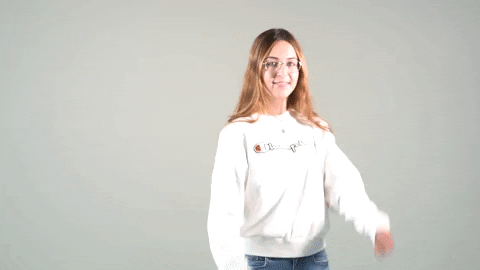
With the summer holidays in full flow, your teen is probably being bombarded with all types of messages telling them how their bodies should look. This does happen all year round but seems particularly loud as the shops are full of bikinis and very short shorts.
Our girl’s bodies are changing very quickly, and they may not look like they did last year, last month, or even last week! This can make them feel very uncomfortable in their own skin, and the change from a child to a young woman’s body can be really difficult for them. The key thing here is not to make a fuss, embarrass them or draw too much attention, as chances are, they have noticed the changes too. But you already know that right?
So, how can you support them? Well, our good friends at Intuitive Eating Ireland have put together some do’s and don’ts when it comes to our teens changing bodies, and we just had to share them with you.

First, what is Intuitive Eating?
Intuitive eating is a self-care framework i.e. a set of principles accessible here to tap into your intuition about what feels good for you and your body. It’s a way of eating that provides nourishment to the body and honours your hunger cues. So often we are bombarded with messages about how to eat, but intuitive eating is about listening to your own body about what keeps you feeling good. It is important to note that intuitive eating is not a diet – it is breaking free of that cycle of diets, and allowing yourself the freedom to eat what you desire.
The Do’s

- Do know that weight gain is completely normal – as a matter of fact, it is actually necessary during puberty. On average, teens gain 6.5 lbs per year as their bodies mature.
- Do listen and hold space for your teen if they share stress or worries about their changing body with you. Ensure they know you are there for them through this change.
- Do talk about how bodies come in all shapes, sizes and colours.
- Do remind them that every single person on this planet looks different and is unique. We are not designed to look exactly like our friends or celebrities.
- Do ensure you have a wide variety of foods for their growing appetite.
- Do include some of their favourite fun foods in the weekly shop.
- Do learn about non-diet nutrition – this is all about understanding how you can support their development by offering good sources of protein, carbs and fats without the diet mentality.
- Do help your teen understand and decipher their body’s signals for emotional or physical hunger. This is noticing if they regularly use food to self-soothe and explore other ways they can calm themselves without restricting food.
- Do share your own experiences and struggles of puberty. It will help them feel less alone, and reduce some emotions they might be feeling such as shame, stress or fear. We have all been there – let them know you are human too!
The Don’ts

- Don’t jump straight to thinking this weight gain is a problem that has to be fixed. Society has led many of us to believe our value and worth is depending on a number on the scales. Your teen gaining weight does not mean you are doing anything wrong.
- Don’t advise them to “watch their weight”. Don’t reply to their worries with “No, you’re not fat, you’re beautiful”. This will lead them to make the connection that fat is not beautiful, something to avoid, and something to be ashamed of – which is absolutely not the case.
- Don’t weigh them.
- Don’t encourage them to join any franchised weight loss programmes.
- Don’t restrict their food intake or put strict rules in place. This will just increase cravings for these foods.
- Don’t comment or draw attention to their appetite.
- Don’t assume that they must be full or couldn’t be hungry – you want to avoid sending them the message that the signals their body is sending them are wrong or can’t be trusted.
- Don’t ever use food as a form of bribe, reward or punishment. Remember food is not “good” or “bad” – it is morally neutral.
- Don’t make them feel bad for emotional eating. They are going through a lot and food may be the safest option for them to emotionally regulate.
- Please don’t force them to exercise. Instead, encourage them to find movement they enjoy. Don’t focus on what will make their bodies look good, instead focus on how movement supports their emotional and mental wellbeing.
If you’d like a little more support, check out this article. A few years back, our ambassador Clara sat down with Sinead and Gillian from Intuitive Eating Ireland and discussed what advice they would have for people who would like to improve their relationship with food!
If you would like to support us and the work that we do, you can find out more below




